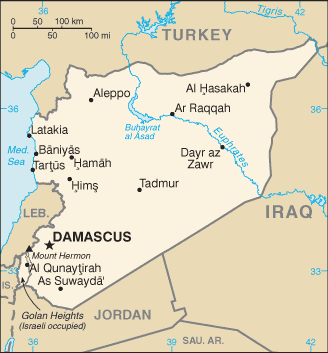Despite early indications from Turkish officials that the civil war in Syria would be in at least some measure about western Kurdistan, the nation’s Kurdish National Council (KNC) is trying to find itself a third route through the ongoing crisis, spurning both rebels and regime and opting to stand alone.
 It is not so much a matter of choice as necessity. The rebels are overwhelmingly hostile to the Kurds, both because of the Arab nationalist rhetoric used by their leadership and because they are enjoying strong support from Turkey. At the same time, the regime has never been all that friendly to the Kurds, and have lost most of their territory around Kurdistan at any rate.
It is not so much a matter of choice as necessity. The rebels are overwhelmingly hostile to the Kurds, both because of the Arab nationalist rhetoric used by their leadership and because they are enjoying strong support from Turkey. At the same time, the regime has never been all that friendly to the Kurds, and have lost most of their territory around Kurdistan at any rate.
For Syrian Kurds caught in the middle, many are opting to flee the country into neighboring Iraqi Kurdistan, where the KNC leadership enjoys a good relationship with the Iraqi Kurdish government.
As Iraq has splintered into sectarian fighting, the Kurds have established greater autonomy, and it seems that the same thing is happening in Syria as the civil war tears that country apart. All this is establishing de facto Kurdish-run territories, but may eventually set the stage for a full scale secession and the creation of a Kurdish state.


